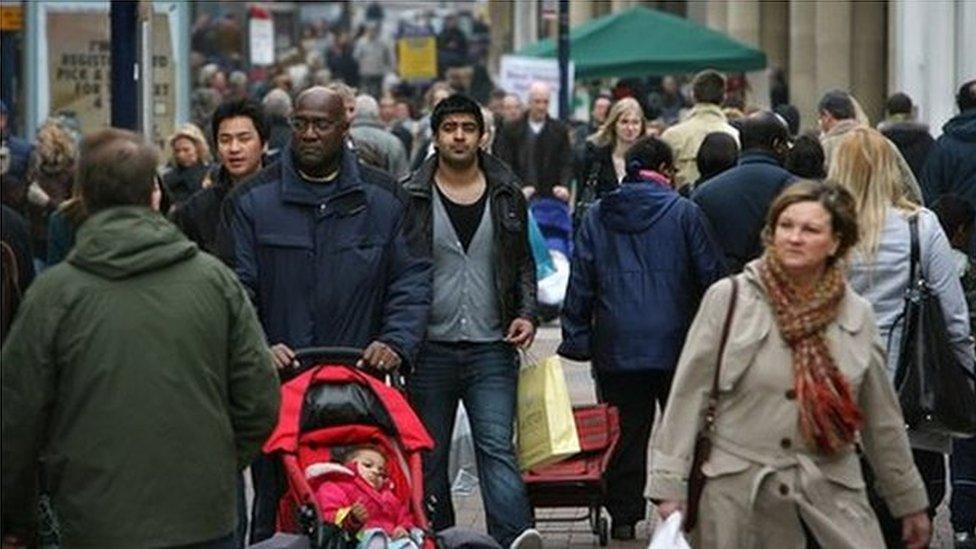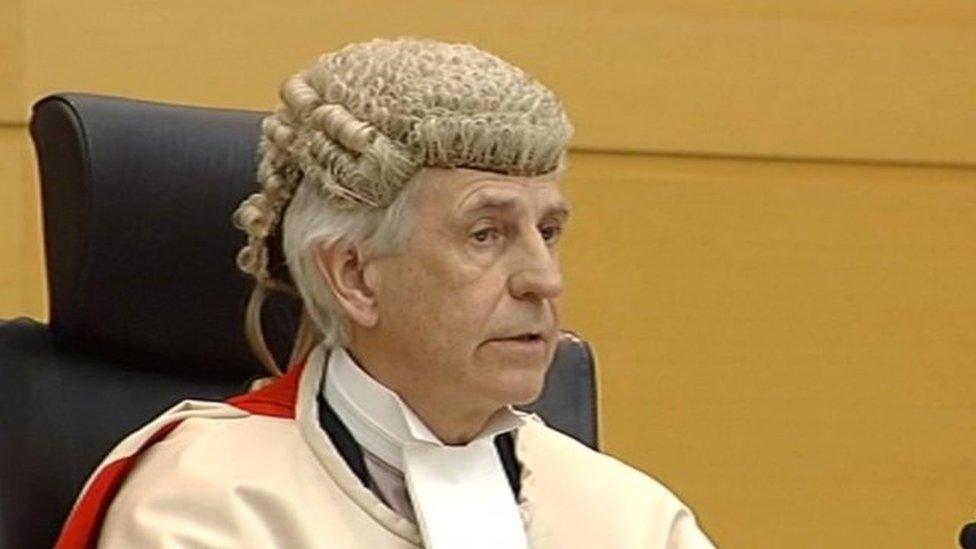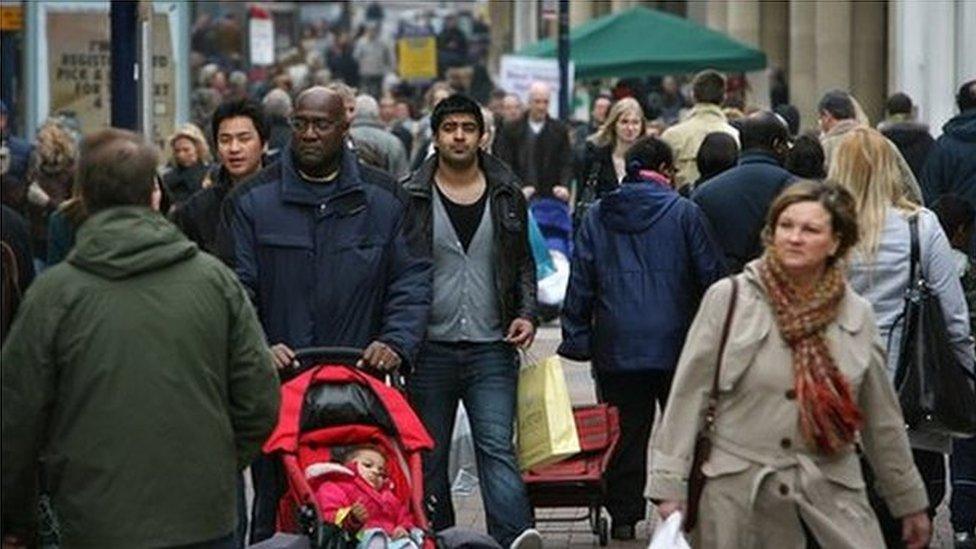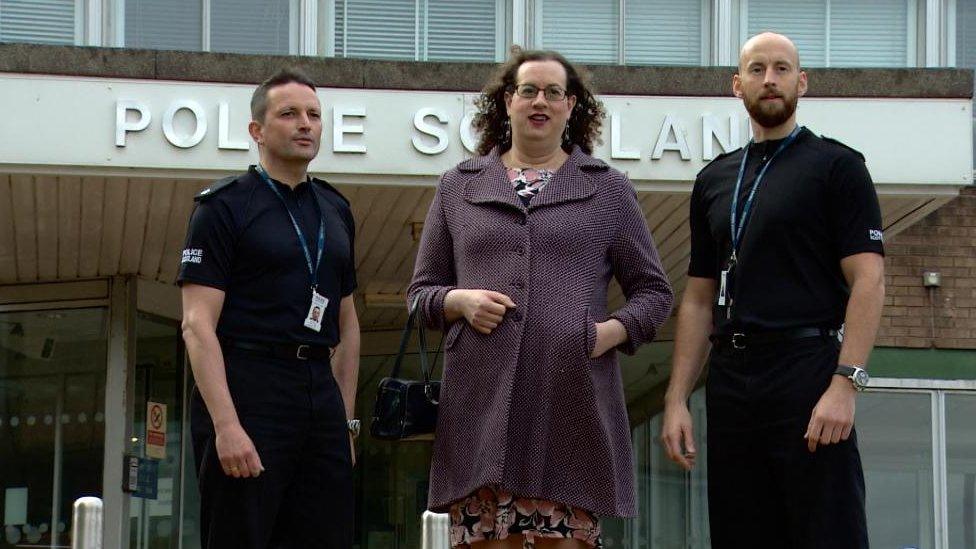Call for 'public health approach' to tackle hate crime
- Published

Hate crime has an impact right across society, the report said
A new approach should be adopted to tackling hate crime, a report from Victim Support Scotland (VSS) has said.
The 93-page report, external said dealing with hate crime should involve collaboration between different organisations to support victims and their communities.
This would mirror the current approach to public health issues, it said.
The report, launched at a conference in Glasgow on hate crime, called for groups currently excluded from existing laws to be given legal protection.
In 2016-17, there were a total of 5,708 hate crime charges, external in Scotland.
These included 3,349 racial, 673 religious, 1,075 LGB, 40 transgender and 188 disability hate crimes.
But VSS said it is widely accepted that the real levels of hate crimes were far higher than reported in official statistics, as a significant number go unreported.
Removing barriers
Its report - "Fostering a victim-centred approach to hate crime in Scotland" - said removing barriers to under-reporting should be a priority, with hate crimes against groups such as the elderly, asylum seekers, homeless people and travellers considered as part of any new legislation.
Alan McCloskey, VSS director of operations, said: "Most of the policy and research relating to hate crime focuses on the perpetrators and the criminal justice response and, while that has value, we would like to see a shift that keeps victims, and their experiences, at the forefront of all discussions.
"We must tackle the barriers that prevent victims from reporting crime.
"Victims don't report for a number of reasons.
"It could be that they fear they won't be taken seriously, they lack trust in the authorities or they are apprehensive about disclosing their sexual orientation or gender identity to authorities.
"The frequency of 'low level' hate incidents could mean it is impossible for a victim to report them all, and for them it becomes part of day-to-day life and normalised."

Lord Bracadale is looking at hate crime legislation
Hate crime legislation in Scotland is being reviewed by the High Court judge, external Lord Bracadale who said he hoped to ensure legislation was fit for the 21st Century.
He has been asked to consider whether current laws are fit for purpose and if new categories of hate crime, such as age and gender, should be created.
The judge has published a consultation paper and requested responses by November.
He said: "Hate crime legislation is a key way in which our society recognises the impact that hate crime can have on victims and our communities.
"Since I was appointed by Scottish ministers to review hate crime legislation, I have deliberately spent time listening to victims and representatives of communities affected by hate crime, as well as those who work in the criminal justice system."
- Published23 September 2016

- Published9 October 2016
